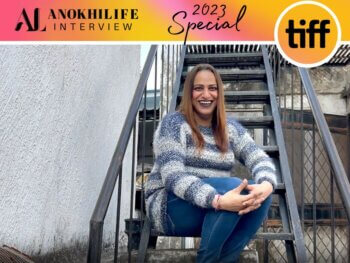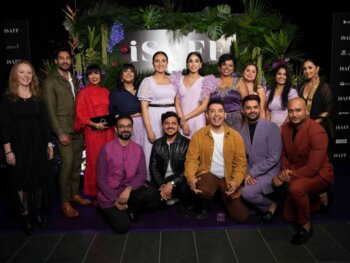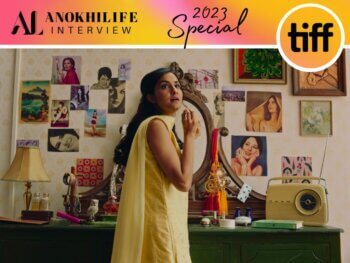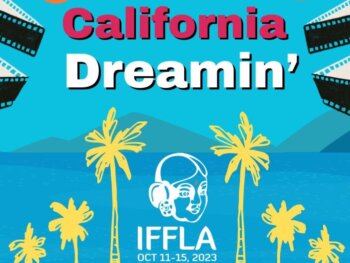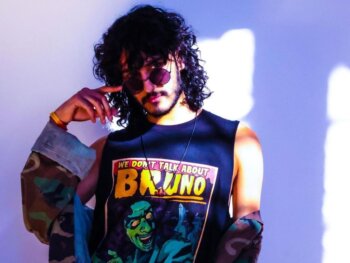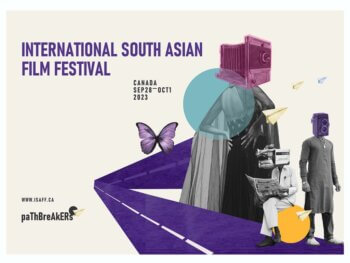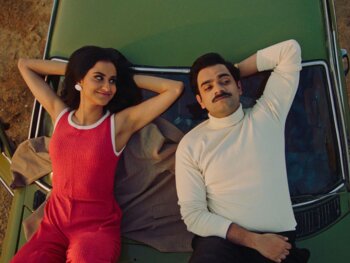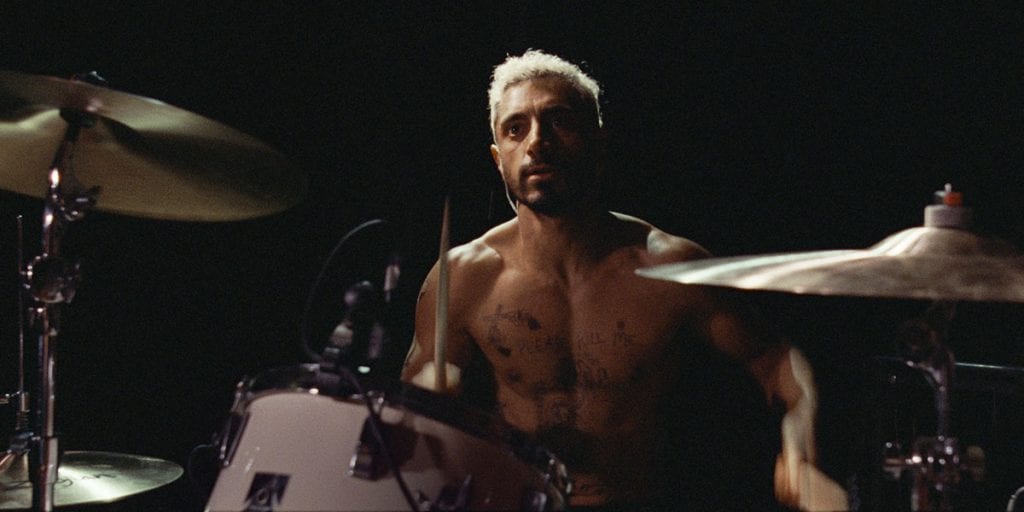
Award Season Fave: Golden Globe & SAG Award Nominee Riz Ahmed Talks To Us About His Turn In ‘Sound Of Metal’
Entertainment Feb 25, 2021
With award season kicking off with the Golden Globe Awards this weekend, we felt it was high time to revisit our exclusive interview with current Golden Globe & SAG Award nominee Riz Ahmed for his role in Sound Of Metal. Here, he discusses his acclaimed turn as a heavy-metal drummer going deaf, which premiered to a rousing reception at the 2019 Toronto International Film Festival.
Among the hottest tickets at this past Toronto International Film Fest was the visceral, poignant story of Ruben, a noise-metal drummer (Riz Ahmed) whose entire sense of self is thrown into turmoil when his hearing suddenly goes.
No longer able to tour with his soulmate/bandmate Lou (Bates Motel breakout Olivia Cooke), he ends up at a halfway house for the deaf, learning to accept his new reality and perhaps, in so doing, tame some of his demons. Acquired by Amazon after premiering at the festival, Sound of Metal will arrive on streaming service Amazon Prime Video sometime in 2020.
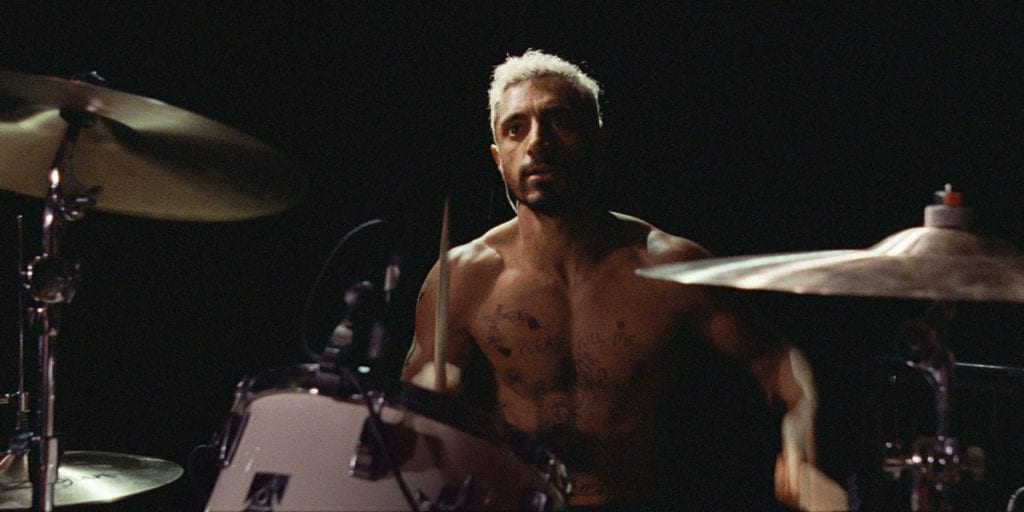
Director Darius Marder, in his narrative feature debut, plunges the audience inside Ruben’s hearing loss with truly immersive sound design, while his script and a supporting cast populated by actual hearing-impaired actors offers a look at the seldom-explored deaf culture.
His star, meanwhile, more than holds up his end of the bargain. As we’ve come to expect from the talented young Brit, Ahmed completely enthralls as a man torn between hanging on to what he had and embracing what he’s become. A fixture at TIFF, with films like Cities of Tiny Lights, Nightcrawler and most recently The Sisters Brothers, Ahmed was honoured with the IMDb STARmeter Award while in town at this year’s fest.
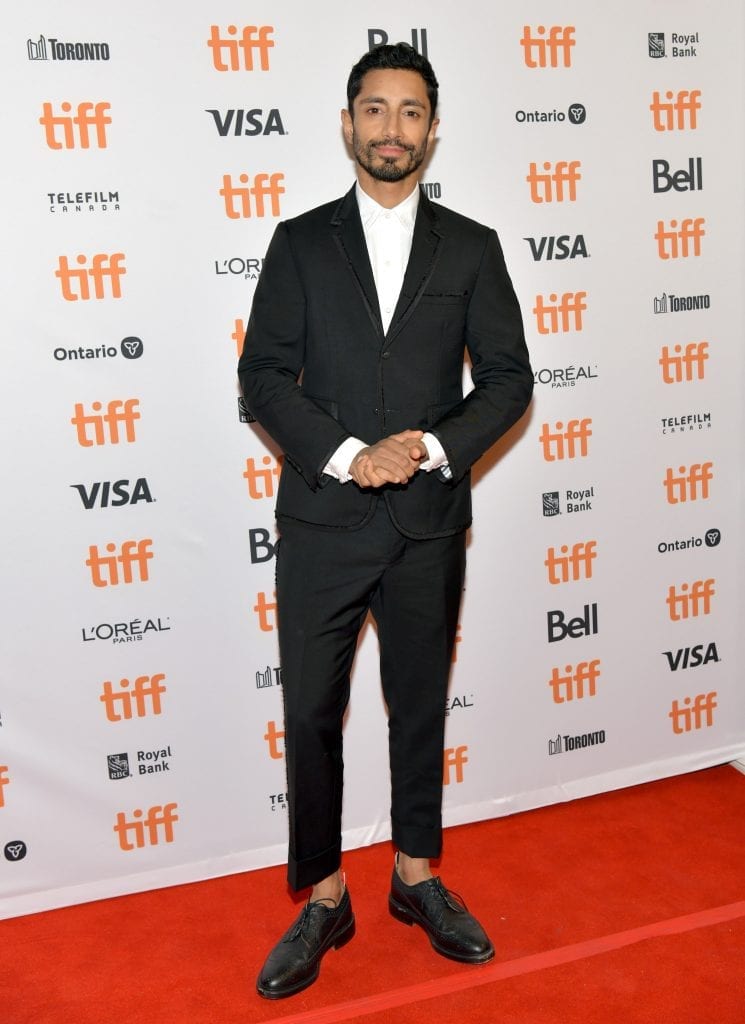
On a Saturday afternoon in early September, at a rooftop restaurant patio in Toronto, ANOKHI Life took part in a roundtable chat with Mr. Ahmed. Topics include how playing Ruben changed his life, the difference between doing an indie flick and doing a Disney blockbuster, and Riz’s new mission to be less of a chameleon and infuse his roles with more of himself.
What drew you to this character?
Riz Ahmed: It was scary, you know? It was really scary. I was just like, “This is going to be a fucking challenge, man.” But even before I really thought about what the preparation would entail, I think what drew me to it was Darius as a director. I think people think of directing as pointing a camera and getting out of the way. It’s not. The way that he coaxed performances out of me and Olivia — when you’re seeing our performances, when you’re seeing the chemistry between the characters, that’s Darius’s fingerprints all over that. He put so much of himself into the character. The character of Ruben is almost an amalgam of me and Darius, in a way. We have similar front-footed energy to him, we like taking care of people, but we have this fire in us that sometimes can threaten to destroy us, really. We’re always looking for a way to channel it.
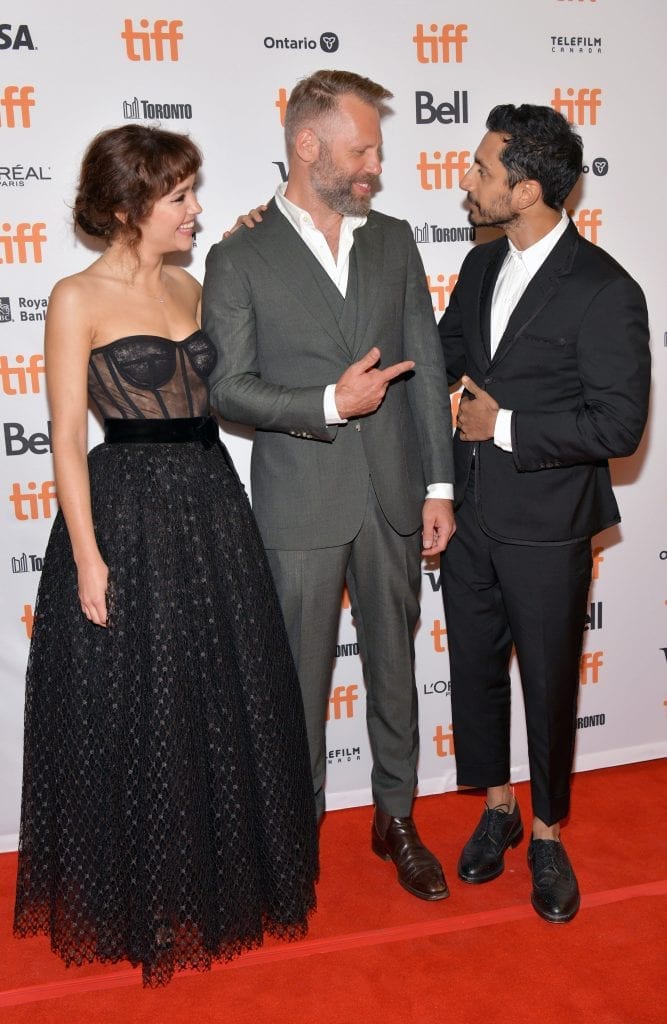
You’ve described this as a life-changing role. How so?
Riz Ahmed: Every role that you do is life-changing, because acting [allows you to] work through aspects of your own life, your own personality. Through that process, you may unpick a knot in yourself. What was really powerful about this experience is that it was such a daunting and immersive preparation [process], and it became so clear at a certain point that things would essentially be out of my control. There were too many factors, there were too many things to get on top of . . . I’ve always been someone who over-prepares, I’ve always been someone who really thinks through their choices. There are good things that come from that, but I personally found I was coming to a place in my work where I was pushing up against the limits of that frontal-lobe approach. You can’t play the drums with your frontal lobe, you need to find a more primal base. You can’ t communicate in sign language with your frontal lobe, because it forces you to remove the mask of words and communicate with your entire body.
So many things to think about and such little time to shoot it meant that I just kind of surrendered to the process. That’s what I took away from this experience, was understanding the power of surrender, facing your vulnerability as an actor. And it’s interesting, because that’s also what the film’s about, right? The film’s about surrendering to circumstance, the film’s about trying to find strength in vulnerability.
What took longer to get comfortable with, the drumming or the signing?
Riz Ahmed: They were both challenging in different ways. In a way, the key to both of them is the same thing, which is let you body take over. You can’t think your way to expressing yourself through drums, and in sign language, you have to let your body take over . . . The deaf community have this trope about hearing people; Jeremy [Lee Stone, ASL teacher] tells me, “Hearing people are emotionally repressed.” That’s what deaf people think of us, and I think they’re right, because we hide behind words, whereas I remember the first time I started talking to Jeremy about my character is ASL, I was so emotional I just couldn’t control it.
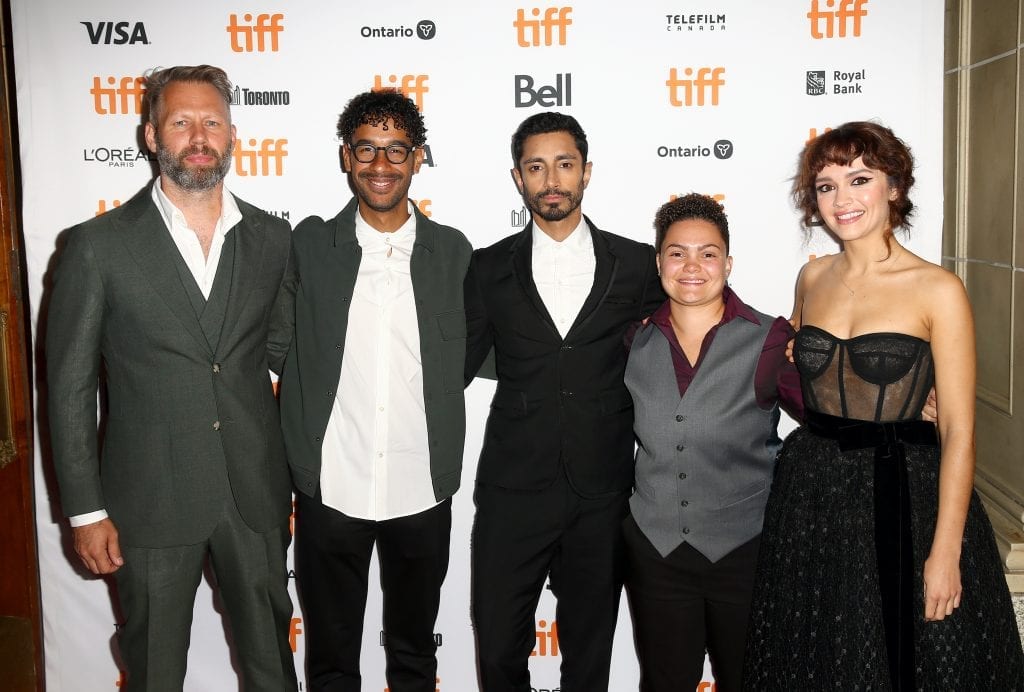
Matt Currie: How different is your process on an indie film like this compared to a big blockbuster like Rogue One or Venom? Would you say you have the chance to go deeper into character on a smaller film?
Riz Ahmed: It is different, yeah. Everything is a product of its process, right? Working on the bigger movies, they often don’t have scripts locked down, so the scripts are constantly evolving, they’re being rewritten as you go, you have a lot of reshoots; whereas with the smaller films, you have to decide everything months or even years in advance, make sure it’s all locked down so you can execute it in a way that’s time-efficient, budget-efficient. In the bigger films, in a way, it’s much more thinking on your feet. The scenes and the story change . . . there’s an element of improvisational spontaneity that you have to bring to that process and a kind of lightness of flow so you’re able to pivot to cover a lot of different options.
Whereas on these more independent films, you make your choice, you’re not going to cover all [the possibilities]. Because of that, you spend your energy going a little deeper — that’s fair to say.
What would you say is your career through-line, your career arc? City of Tiny Lights, Nightcrawler, The Night Of … and into this one as well, your roles have been so diverse.
Riz Ahmed: It’s interesting, they say, “Restrictions force innovation.” And I think part of why I’ve been lucky in being able to take on some interesting roles and varied roles is, in a way, because of the obstacles faced by being a person of colour, someone of my background, someone of my class — all those things which mean that you adapt. When you’re told you don’t belong somewhere, you’re forced to be a chameleon. That happened to me socially growing up, and it’s happened to me similarly as an actor at different times.
After you’ve done that for a while, you realize you’re a good contortionist, you’ve got a flexible spine. You start wondering, “Well actually, can I just stand up straight? Will the world make room for me if I just stand up tall?” I’m 36 now and I’m coming to a point in my life where I’m experimenting with just standing up straight and not wearing the masks that may be required of me as a character actor.
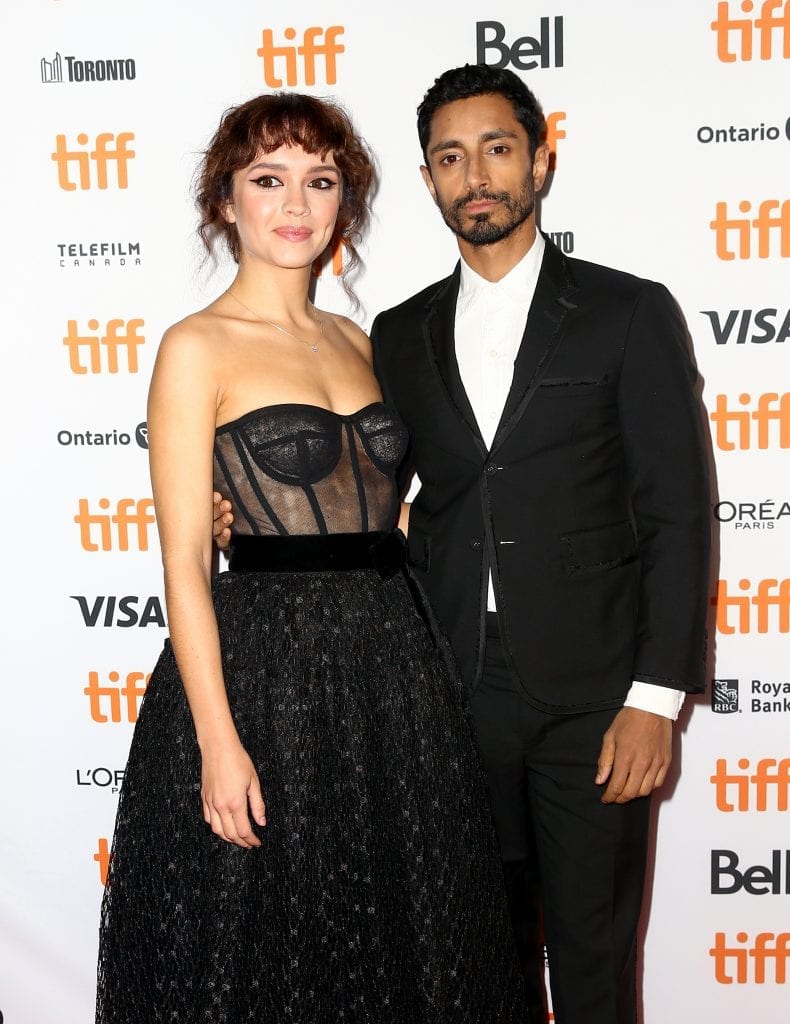
I’m certainly excited about actually bringing more of myself to my work. The thing that doesn’t exist in culture and art is Cameron Bailey [TIFF’s artistic director]. Is there a Cameron Bailey character you can think of in film and TV? A character like me, the me you’re sat with right now? Or Dev Patel? I’ve realized that the way for me to stretch culture going forward — which has always been my guiding mission — perhaps the way to do that isn’t to bend, contort and stretch myself into the different spaces allocated for me, but it’s to be my full self.
Main Image Photo Credit: www.tiff.net
Matthew Currie
Author
A long-standing entertainment journalist, Currie is a graduate of the Professional Writing program at Toronto’s York University. He has spent the past number of years working as a freelancer for ANOKHI and for diverse publications such as Sharp, TV Week, CAA’s Westworld and BC Business. Currie ...




































































































